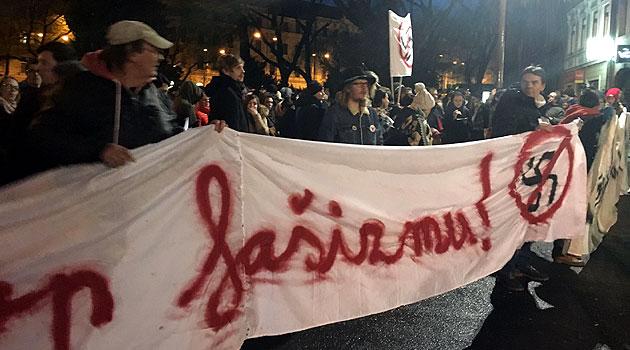Slovakia: Study says failure of mainstream parties supports right-wing extremism

The success of right-wing extremism in Slovakia consists to a great degree of the fact that standard institutions and political parties are not fulfilling the roles expected of them, the authors of a study analyzing extremism and nationalism in the country warned on Tuesday. The ultra-right in Slovakia unexpectedly succeeded in the March parliamentary elections this year when the LSNS, the party of the Governor of Banská Bystrice Region, Marian Kotleba, won 8 % of the vote and took 14 seats in the 150-seat legislature.
The LSNS advocates, for example, that Slovakia leave the EU and NATO and has promised in its program, among other things, to establish “order with the parasites in the settlements” and to protect people against “Gypsy terror”. Sociologist Oľga Gyárfášová, one of the authors of the study, said that “This anti-system political alternative was attractive for people. They didn’t find themselves in what the traditional parties were offering,” adding that roughly one-fifth of first-time voters chose the LSNS.
Gyárfášová also said support for the LSNS is still reported as remaining at the level of that electoral gain. Her co-author Grigorij Mesezhnikov said an example of the radicalization of all political parties in Slovakia has been their response to the refugee crisis.
Not only has Slovak Prime Minister Robert Fico long opposed the redistribution of asylum-seekers on the basis of mandatory quotas, the representatives of opposition parties have as well. Gyárfášová pointed out that Slovaks favor social security to political freedoms.
“In the dilemma over whether we want more security, possibly even at the cost of limiting political freedoms, the trends are such that many here would exchange their liberty for more security even at the price of seeing elements of authoritarian behavior arise,” she said. The authors of the analysis also said the LSNS is too weak to adjust the actual character of the country’s political regime because it is isolated in the legislature and has zero coalition-building potential.
“The virus of extremism is, of course, dangerous because of its divisive impact on society’s atmosphere. The presence of the LSNS in Parliament is one of the greatest challenges to the anchoring of the Euro-Atlantic orientation, to civil coexistence, and to liberal democracy in Slovakia,” the study says.